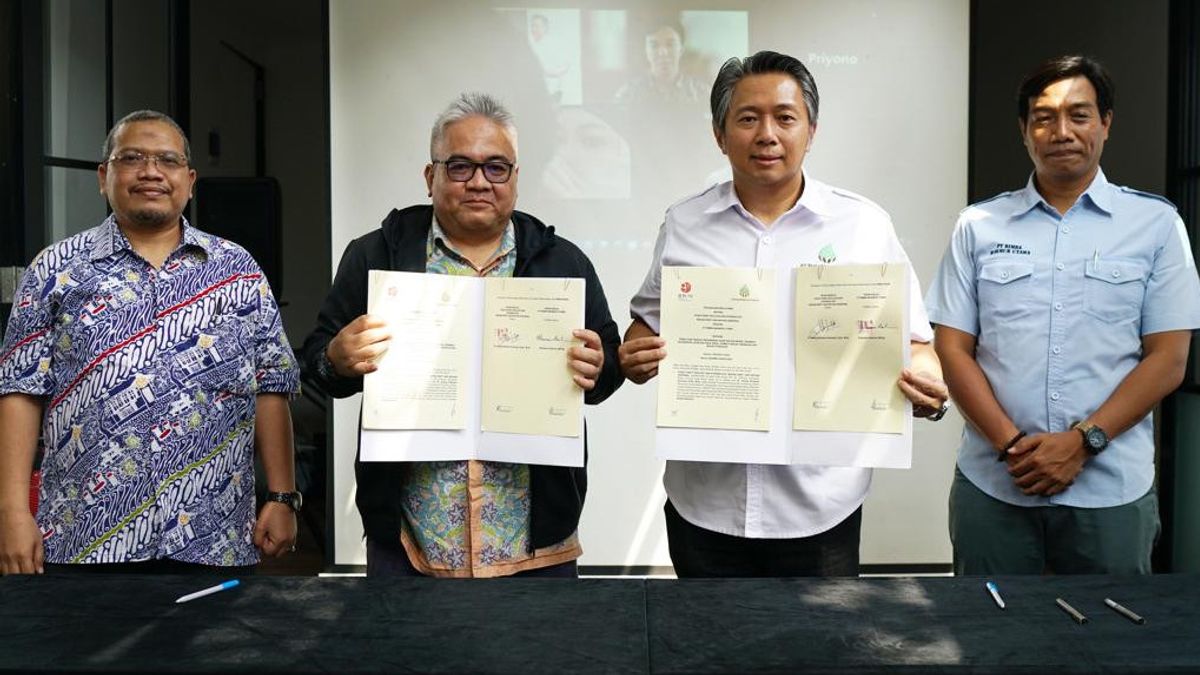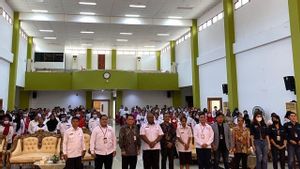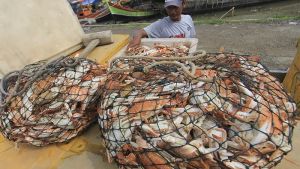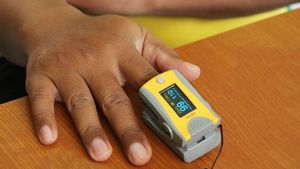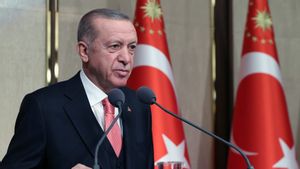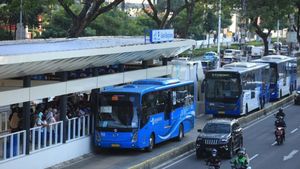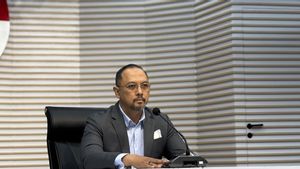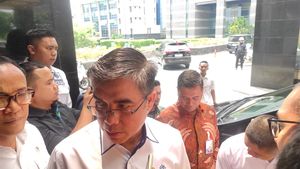JAKARTA - Tropical peat swamp forest is one of the forest ecosystems that stores very large carbon stocks, and has a central role in fighting climate change on earth. The total peatland in Indonesia covers an area of about 13.4 - 14.9 Mha.
However, some of these tropical peat swamp forests have been degraded due to agricultural activities, logging, and other land conversion activities, as well as forest fires. Strategic and systematic steps are needed to restore the function of the degraded peat forest as the world's largest carbon sink and store, as well as a climate balancer.
Based on the intention to optimize the restoration of peat swamp forests in production forests in Indonesia, the Center for Ecology and Ethnobiology Research at the National Research and Innovation Agency (BRIN) and PT Rimba Makmur Utama (RMU) have signed a Cooperation Agreement for collaborative research on Wednesday, November 2, 2022, in Bogor, West Java.
Through this collaboration, both parties agreed to conduct joint research in the field of restoring degraded peat ecosystems, including vegetation regeneration, tree species suitability, hydrological restoration, and peat soil conservation. The signing was carried out by the Head of BRIN's Center for Ecology and Ethnobiology Research, Dr. Anang Setiawan Achmadi, SKH, MSc. and the CEO of PT RMU, Dharsono Hartono.
PT RMU is the initiator and manager of the Katingan Mentaya Project, a business model for restoration and conservation of 157,875 hectares of peat forest ecosystem in Central Kalimantan through the Forest Utilization Permit (PBPH). In addition, currently, PT RMU and the Center for Ecology and Ethnobiology Research BRIN are also preparing another collaboration draft on the topic of paludiculture for peat ecosystem restoration, which will be signed in the near future.
General Field Manager of PT RMU Taryono Darusman said, RMU was very enthusiastic to collaborate with the BRIN Ecology and Ethnobiology Research Center.
"As managers of peat forest ecosystems in Central Kalimantan through the Katingan Mentaya Project, we are fully aware of the importance of peat forest ecosystems, ranging from the benefits of climate regulation, pollution and flood control, providing food, fiber, and water sources, supporting extraordinary biodiversity, to recreational benefits and much more. We have a responsibility to preserve forest ecosystems and restore degraded land within the Katingan Mentaya Project area," said Taryono in his written statement, Friday, November 4.
"We hope that the results of this research collaboration will help optimize peat forest restoration efforts carried out by us and various other parties in the future, because it is based on scientific research that can be accounted for," he added.
The signing of the PKS today is part of a series of collaborative research agendas between PT RMU and BRIN. Previously, RMU had signed two other PKS, namely the research collaboration between RMU, the BRIN Physics Research Center - Dr. Albertus Sulaiman and the Department of Geophysics and Meteorology IPB - Prof. Tania June; and PKS with a Mining Technology Research Center headed by Dr. Anggoro Tri Mursito.
"Internally, the opportunity to collaborate with experts from BRIN will further increase the capacity of our staff. This collaboration is part of the benefit sharing that we provide to the Indonesian people in the field of research," he explained.
SEE ALSO:
BRIN Associate Expert Researchers, I Wayan Susi Dharmawan and Budi Hadi Narendra said that peat swamp forest restoration must begin with careful planning so that the degradation experienced does not get worse. For this reason, it is necessary to support ecological information, especially the structure and composition of the existing forest as well as the dynamics of the regeneration of its stands in order to optimize the restoration efforts.
"Through a series of studies that have been outlined in the framework of reference (KAK), it is also hoped that science and technology support will be obtained in planning for peat swamp forest restoration, including hydrological aspects, selection of plant species, and efforts to conserve peatland soil and water," he said.
This collaboration between BRIN and RMU combines two strengths, where BRIN has a range of researchers who are scientists who are experts in their fields, and PT RMU, which through the Katingan Mentaya Project can provide abundant raw materials and research support materials in the field.
"We believe that the results of this research, which will be carried out for three years, will bring a lot of new knowledge and findings that are very valuable in efforts to restore peat forests in Indonesia. Undoubtedly, this will bring benefits in restoring environmental conditions in Indonesia for our future generations later," concluded Taryono.
The English, Chinese, Japanese, Arabic, and French versions are automatically generated by the AI. So there may still be inaccuracies in translating, please always see Indonesian as our main language. (system supported by DigitalSiber.id)
